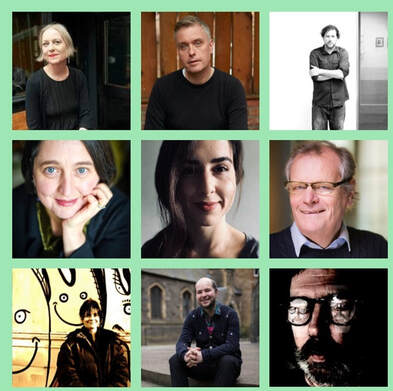|
I've been working with Matt Dalby over the last month on some poetry-walking/walking-poetry for this live event. Loads of great poets to hear. Come along on to The International Anthony Burgess Foundation, Friday October 1st : 7pm doors : Free entry.
More details here - https://www.europeanpoetryfestival.com/manchester21 Patricia Farrell and Michael Egan Ailsa Holland and David Gaffney Tom Jenks and SJ Fowler JT Welsch and Colin Herd Robert Sheppard and Joanne Ashcroft Lydia Unsworth and Sarah Clare Conlon Callie Michail and Scott Thurston David Spittle and Stephen Sunderland James Davies and Matt Dalby
0 Comments
On July 20th 1841 the poet John Clare decided to ‘escape’ the asylum in The High Beech in Epping Forest, Essex, where he was interned, some 100 or so miles away from his beloved home in the village of Northborough, just outside of Peterborough and go home. He trudged the distance without food or money, sleeping rough – it took him four days. His journey is detailed in his diary Journey out of Essex. In 2000 Iain Sinclair also walked Clare’s route – with some minor changes – documenting it in his excellent book The Edge of the Orison – the phrase ‘The Edge of the Orison’ is taken from Clare’s writings. The diary at Junction Box records a similar walk that I took between 19-23 October 2019.
You can read it HERE I interviewed Lucy about her 6 favourite books of poetry as guest host on this new poetry podcast. Lucy chose poems by Katy Bohinc, Lisa Roberton, Chelsey Minnis, Richard Makin, Mira Mattar and Rilke.
The link is HERE Review of Philip Terry's A Handbook of British Birds and Peter Jaeger's English Trees: A Brexit Poem5/19/2021 ‘Bee-eater’ and ‘Rook’ Terry writes, ‘white‘Bee-eater’ and ‘Rook’ Terry writes, ‘whitebeam’ and ‘fig’ writes Jaeger.beam’ and ‘fig’ writes Jaeger.
Read more of my review of these two excellent books at The Babel Tower Notice Board HERE 'Three of my earliest published works: The Manual Handling Process, Acronyms and Plants deal with trying 'not' to say.'
Substantial interview about my poetry over the years - http://robmclennan.blogspot.com/2021/03/12-or-20-second-series-questions-with_30.html One of my poems from Forty-Four Poems and a Volta is in Chrissy Williams' excellent Perverse magazine. It's presented in the form of a mobile. It has something to do with the British Empire, Philip K. Dick and species extinction. https://perverse.substack.com/p/perverse-5a?utm_campaign=post&utm_medium=email&utm_source=twitter
'Having read both these books across a couple of weekends, I’m now clear that I’m reading my current state of mind through them. Of course, contemporary poetry is the perfect genre through which this happens. Abstracted or context-loose signs allow the mind to re-thread what remains concrete, black and white, on the page.'
More here - LINK A thorough and poignant review of my novel The Wood Pigeons by Billy Mills - https://ellipticalmovements.wordpress.com/2020/11/18/recent-reading-november-2020/. The book is available from great Dostoevsky Wannabe.
Here's an excerpt - 'the opening phrase ‘The living room’ implies a whole world outside, a house, other rooms, a kind of suburban normality. When this changes to ‘The room’, the world narrows to an enclosed box, with the outside present but unknown, and the text takes on something of the nature of a Becket play without words.' My two ‘William Carlos Williams’ poems, entitled The wind was so strong & So the water arose in little splashes, are now published in the excellent Adjacent Pineapple Six, new issue. It’s not often that I manage to write discrete poems anymore and it’s a satisfying feeling to do so. Thanks to Colin Herd for publishing them. The poems are available here - https://www.adjacentpineapple.com/latest-issue
Some recent reviews - The Ten Superstrata of Stockport J. Middleton and Forty-Four Poems and a Volta5/6/2020 Thanks to both reviewers for their generous and interesting reviews of these books which were published recently.
Mark Leahy reviews The Ten Superstrata of Stockport J. Middleton & Forty-Four Poems and a Volta at Stride HERE and Steve Spence reviews Forty-Four Poems and a Volta at Litter Magazine HERE |
Archives
January 2023
|
